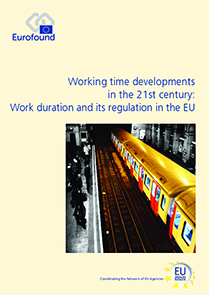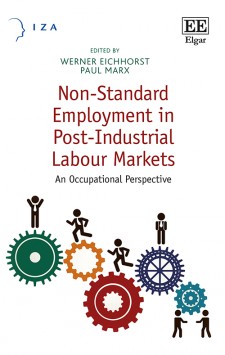Eurostat/Europe 2020 indicators – poverty and social exclusion/March 2016 This article is part of a set of statistical articles on the Europe 2020 strategy. It provides recent statistics on poverty and social inclusion in the European Union (EU). The Europe 2020 strategy is the EU’s agenda for growth and jobs for the current decade. It emphasises smart, sustainable and inclusive growth as a way to overcome the structural weakness in Europe’s economy, to improve its competitiveness …Read More
Improvement during Crisis Years? Poverty and Housing Conditions across the EU, 2007 – 2012
Lelkes, Orsolya, Zólyomi, Eszter, (2015), “Improvement during Crisis Years? Poverty and Housing Conditions across the EU, 2007 – 2012”, Policy Brief September 2015 The Policy Brief aims to provide an overview of housing deficiencies in EU Member States and to examine the extent to which they are linked to low income. Housing is a key aspect of poverty and social exclusion.The quality of housing has an impact on, for instance, social relations …Read More
The welfare state in Europe: still worth having?
Begg, Iain, (2016),” The welfare state in Europe: still worth having?”, LSE Blogs, 13 Απριλίου While there is some validity to these criticisms of European welfare states, they are also simply too crude to tell the whole story. Welfare states in Europe fulfil three distinct functions and it is crucial to understand the balance between these functions in assessing their sustainability and effectiveness in dealing with social risks. The first function …Read More
Free Movement of Persons: The Mirage of Social Security Schemes
Nedelescu, Roxanna, (2016), “Free Movement of Persons: The Mirage of Social Security Schemes”, Bruges European Economic Research Papers 34/2015 The purpose of this paper is to address the issue of social security benefits that jobseekers, nationals of other Member State, residing in another Member States are in title to, as well as the economic implications of free movement of persons and labour market access. Consequently, it aims to disentangle between labour …Read More
Why Global Inequality Matters
Milanovic, Blanko, (2016),” Why Global Inequality Matters“, Social Europe, 18 Μαρτίου Let me start by enquiring about the importance assumed by inequality in the public debate during these last years. As we know, inequality has been marginalised both in academia and in politics – also and especially on the left, which should have been the most sensitive to social issues. Then, all at once, with the outbreak of the crisis, inequality …Read More
The ‘Tax Shift’: A Surrealist Fantasy
Drahokoupil, Jan, (2016), “The ‘Tax Shift’: A Surrealist Fantasy“, Social Europe, 15 Μαρτίου Reducing taxes on labour – personal income taxes and employers’ and employees’ social security contributions – is often seen as key to increasing employment levels. The latest crop of country-specific recommendations issued by the European Commission is a case in point. Σχετικές Αναρτήσεις OECD tax burdens on wages rising without tax rate increases, OECD Publications, Απρίλιος 2015. Holter, H., Krueger, D. & Stepanchuk, …Read More
In-work poverty and labour market trajectories: Poverty risks among the working population in 22 European countries
Halleröd, Björn, Ekbrand, Hans, Bengtsson, Mattias , (2015), “In-work poverty and labour market trajectories: Poverty risks among the working population in 22 European countries”, Journal of European Social Policy, Issue 5, Volume 25, pp.473-488, Δεκέμβριος Is in-work poverty a low-wage or an unemployment problem, and is it the same problem all across Europe? Because of the definitional ambiguity, we really do not know. In this article, we use longitudinal European Union-Statistics on Income and Living Conditions …Read More
How low-cost labour market information benefits job seekers
Belot, Michèle, Kircher, Philipp, Muller, Paul, (2016), “How low-cost labour market information benefits job seeker”, Voxeu, 10 Μαρτίου. Not much is known about the value of simply advising job seekers on what types of jobs to search for. This column investigates whether the search behaviour and job prospects of the unemployed are affected by providing low-cost personalised labour market information on potential alternative occupations. The results of a randomised trial …Read More
Working time developments in the 21st century: Work duration and its regulation in the EU
Cabrita, Jorge, Boehmer, Simon, Galli da Bino, Camilla, (2016), “Working time developments in the 21st century: Work duration and its regulation in the EU”, Eurofound, Publications Office of the European Union, 1 Μαρτίου. This report examines the main trends and milestones characterising the evolution of the most important aspects of collectively agreed working time in the European Union during the first decade of the 21st century. Drawing primarily on information collected by Eurofound across all …Read More
Non-Standard Employment in Post-Industrial Labour Markets-An Occupational Perspective
Eichhorst, Werner, Marx, Paul, (2015), “Non-Standard Employment in Post-Industrial Labour Markets-An Occupational Perspective”, IZA, Edward Elgar Publishing. Examining the occupational variation within non-standard employment, this book combines case studies and comparative writing to illustrate how and why alternative occupational employment patterns are formed. Non-standard employment has grown significantly in most developed economies, varying between countries. Different institutional settings have been deemed accountable for this variation, although inadequate consideration has been given to differences within national …Read More






